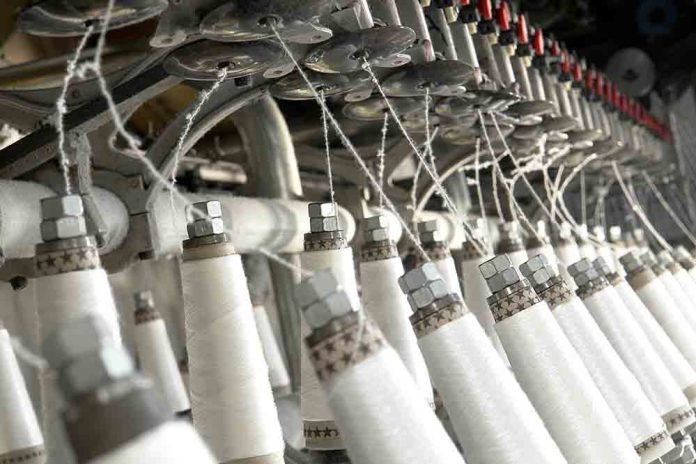The Nigerian textile industry is on the decline as it continues to lose market to imports that have increased in the last four years by 106.7 percent from N182.5 billion in 2020 to N377 billion in 2023, despite several intervention programs to boost the sector over the years.
According to the data of the National Bureau of Statistics (NBS), there has been a consistent rise in textile imports from 2020 when it was N182.5 billion, N278.8 billion in 2021, N365.5 billion in 2022, and N377.1 billion in 2023. This surge in imports occurred even though the Central Bank of Nigeria (CBN) has implemented various intervention programs for the sector over the years, including financial support, training initiatives, and foreign exchange restrictions on textile imports at the official exchange market. But all of these seem not to have any positive impact on the sector.
According to experts Nigeria possesses significant potential in the textile and apparel industry, with a rich history of textile production and a large domestic market. The sector is capable of creating employment opportunities, promoting industrialization, and contributing to the nation’s economic growth.
In a recent interaction with the media, the Director General of the Nigerian Textile Manufacturers Association, Hamma Kwajaffa, lamented that the high cost of production has made the local textile and apparel industry uncompetitive, and discourages investments.
At a recently concluded 13th National Delegates Conference of the National Union of Textile Garment and Tailoring Workers of Nigeria (NUTGTWN) in Abuja, the immediate past President of the union, John Adaji, said that about 90 percent of textile products in Nigeria valued at over $4 billion are imported into the country annually. Adaji also lamented the high production cost of textile materials in the country, which he attributed to poor infrastructure and high energy costs. He urged the government to revive and invest in the textile industry to create 2 million jobs in the country and as well reduce over $4 billion import bill incurred on textiles and apparel annually.
During the 1970s and early 1980s, Nigeria boasted over 180 textile mills, employing more than one million Nigerians. Among these were United Nigerian Textile Limited, Aswani Textile, Afprint, Asaba Textile Mills, and Edo Textile Mills, to mention a few. However, by the 1990s, these once-thriving firms vanished due to challenges such as smuggling, rampant importation, unreliable power supply, inconsistent government policies, and insecurity, making it impossible for them to remain competitive.



